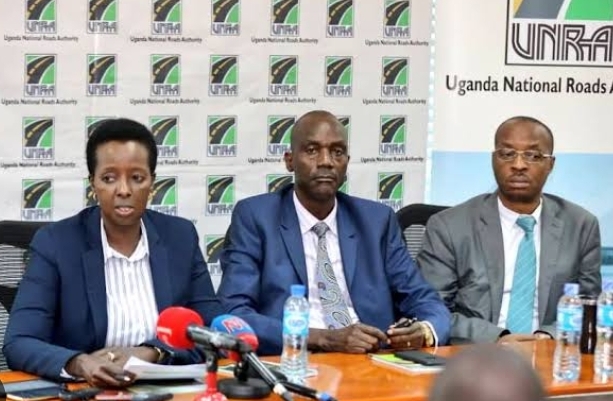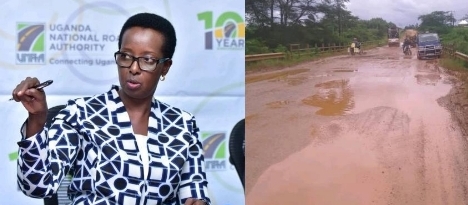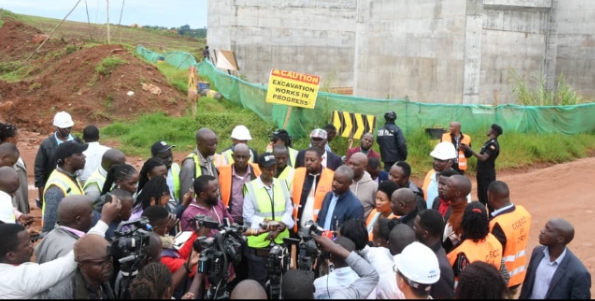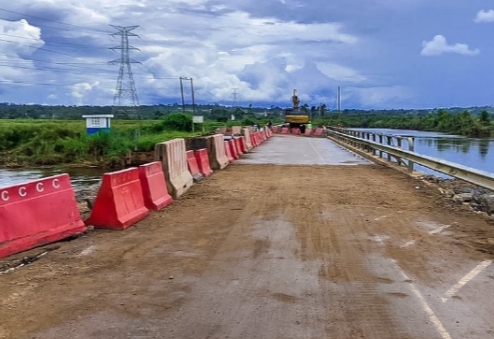Allen Kagina, the long-serving Executive Director of the Uganda National Roads Authority (UNRA),for years, she had dedicated herself to transforming Uganda’s road infrastructure, but the recent passing of the UNRA Repeal Bill signaled the end of an era.
By December 30, 2024, UNRA would cease to exist, its responsibilities absorbed into the Ministry of Works and Transport (MoWT).
The dissolution was anything but smooth. In a parliamentary session a month earlier, General Katumba Wamala, the Minister of Works and Transport, had remarked that “some executive directors had become too big to be inspected.” Though he hadn’t named anyone directly, the insinuation had been clear. Kagina and her colleagues had found the comments insulting and dismissive of their contributions.
Now, tasked with overseeing UNRA’s final handover, Kagina was determined to ensure the transition preserved the agency’s legacy.
“Madam Kagina, the draft handover protocol is ready,” said James Ochieng, UNRA’s head of administration, as he entered her office.
“Good,” Kagina replied, turning to face him. “We need to ensure every detail is captured. This isn’t just about assets and reports—it’s about ensuring the roads sector doesn’t lose momentum.”
The protocol outlined a step-by-step process for transferring UNRA’s functions and assets, from road maintenance equipment to digital records. Meetings had already been held with MoWT representatives to brief them on the agency’s operations, but the challenges ahead were daunting.
The handover would require a budget of UGX 123 million to support operations at UNRA’s 23 regional stations. Moreover, the fate of over 1,000 staff members weighed heavily on Kagina’s mind. She had formally requested the Ministry to clarify the timeline for paying staff terminal benefits, but no response had been forthcoming.
On December 18, Kagina met with General Katumba at the Ministry’s offices in Kampala. The atmosphere was tense but professional.
“General, we’re running out of time,” Kagina began. “The handover process requires immediate funding and clear communication to the staff. Their morale is low, and uncertainty about terminal benefits is making things worse.”
Katumba leaned back in his chair, his face calm but unreadable. “We understand the concerns, Allen. But let’s be honest—this dissolution is long overdue. UNRA has done commendable work, but it’s time to centralize oversight.”
“With all due respect, General,” Kagina said, her voice firm, “dismantling an organization isn’t the same as improving oversight. We’re talking about years of institutional knowledge. This transition could disrupt critical projects if mishandled.”
Katumba nodded slowly. “Point taken. I’ll expedite the release of funds and ensure the staff gets the clarity they need. But let’s focus on making this a success. That’s what matters now.”
On December 30, 2024, the official handover ceremony was held at UNRA’s headquarters. The compound was filled with staff, government officials, and members of the press. Kagina, dressed in a sharp navy-blue suit, stood at the podium to deliver her final address.
“Today marks the end of UNRA, but it’s also an opportunity for a new beginning,” she said, her voice steady. “Over the years, we’ve built more than roads we’ve built connections, opportunities, and hope for millions of Ugandans. I urge the Ministry to carry this legacy forward.”
When General Katumba took the podium, he praised UNRA’s achievements while emphasizing the need for streamlined operations. “This integration is about ensuring accountability and efficiency. Together, we’ll continue to transform Uganda’s infrastructure,” he said.
As the ceremony ended, Kagina stood silently, watching as the UNRA flag was lowered for the last time. Her tenure had come to an end, but her resolve remained unbroken. She had done her part to ensure the handover was more than just a bureaucratic exercise—it was a testament to the value of dedication and leadership.
The future of Uganda’s roads now rested with the Ministry, but the foundations laid by Allen Kagina and her team would remain.
![]()



























